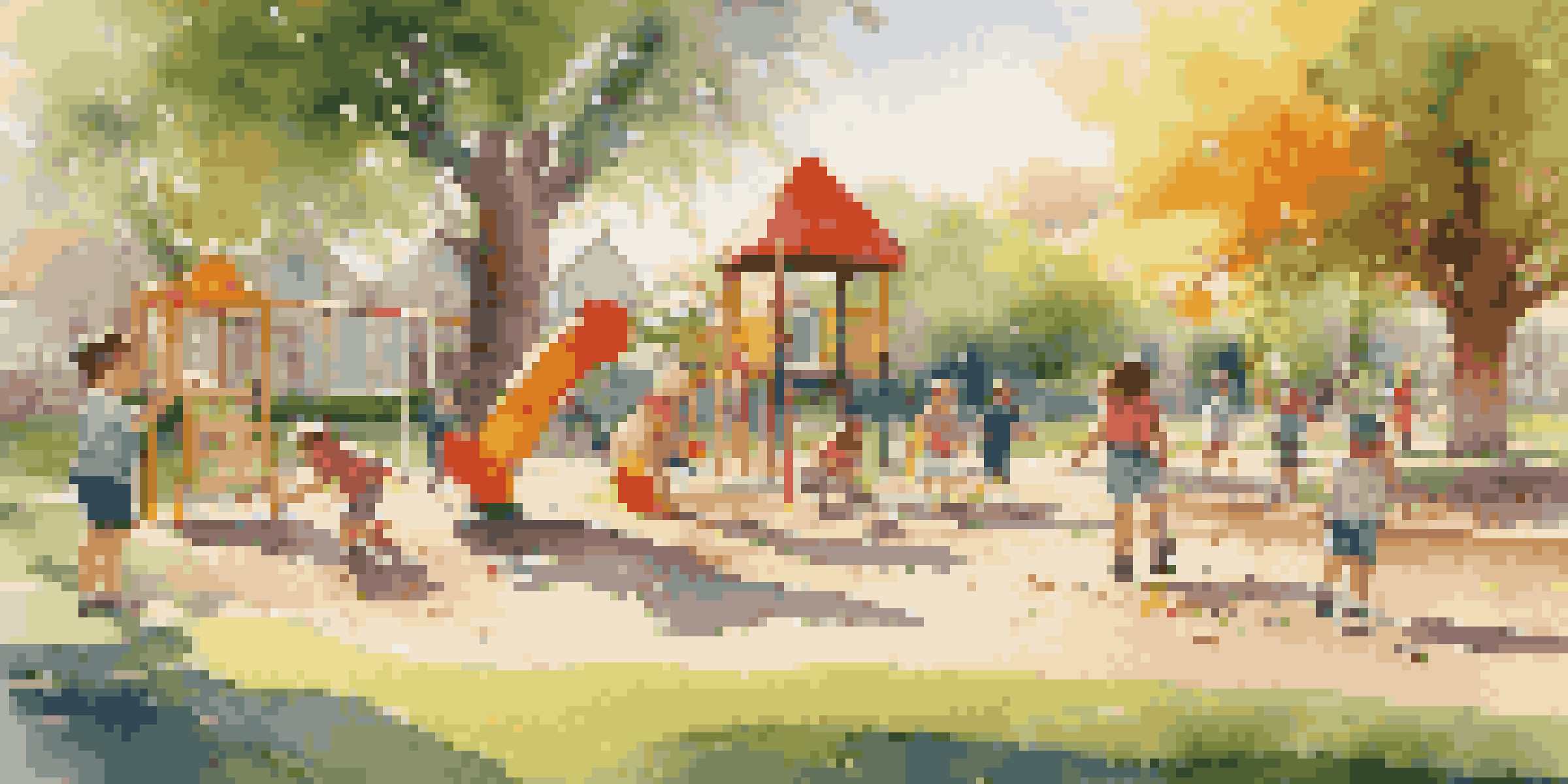The Importance of Play for Cognitive Development in Children

Understanding Cognitive Development in Children
Cognitive development refers to how children think, learn, and solve problems. It's a critical aspect of their overall growth, shaping their ability to understand the world around them. During these formative years, children's brains are incredibly adaptable, making this an ideal time for stimulating experiences that foster learning.
Play is the highest form of research.
Play acts as a natural vehicle for cognitive development, allowing children to explore concepts like cause and effect, spatial awareness, and problem-solving. Through play, kids encounter new challenges that require them to think critically and creatively. This hands-on experience is far more effective than passive learning for building their cognitive skills.
For instance, when a child builds a block tower, they are practicing not just motor skills but also concepts like balance and gravity. Such play activities lay the groundwork for more complex reasoning skills later in life, emphasizing the need for a playful environment.
Types of Play that Enhance Learning
There are various types of play, each contributing differently to cognitive development. Free play encourages children to use their imagination, while structured play often involves specific rules and objectives. Both types are crucial, as they offer different learning experiences that can boost cognitive skills.

For example, free play allows children to create their own games, fostering creativity and decision-making. In contrast, structured play, like board games, helps them learn to follow rules, think strategically, and develop patience. Both forms of play enrich their cognitive repertoire, making them adaptable learners.
Additionally, social play—where children interact with peers—teaches important communication and negotiation skills. This interaction not only enhances their social cognition but also strengthens their ability to collaborate, a vital skill in today’s interconnected world.
The Science Behind Play and Brain Development
Research shows that play is essential for brain development, particularly in early childhood. When children engage in play, their brains release neurotransmitters that enhance learning and memory. This biological response underscores the importance of incorporating play into daily routines.
Children learn as they play. Most importantly, in play, children learn how to learn.
Studies have indicated that children who engage in regular play have stronger problem-solving skills and better emotional regulation. The brain's neural pathways strengthen with each playful activity, illustrating how play can shape cognitive abilities. Essentially, play isn't just fun; it's a powerful tool for learning.
For instance, researchers have found that children who play with puzzles exhibit improved spatial reasoning skills. This skill is crucial not only in mathematics but also in everyday tasks, proving that playtime can have lasting impacts on a child's cognitive abilities.
The Role of Parents and Educators in Facilitating Play
Parents and educators play a pivotal role in creating environments conducive to play. By providing a variety of resources and opportunities for play, they can significantly enhance cognitive development. Whether it's through toys, games, or outdoor activities, the options are endless.
Encouraging unstructured play is particularly beneficial, as it allows children to explore their interests and ideas freely. Parents can initiate play by joining in, showing that learning can be both educational and enjoyable. This involvement helps children feel supported and understood.
Moreover, educators can incorporate play into their teaching strategies, making learning more engaging. By blending educational content with playful activities, they can captivate children's attention and foster a love for learning that lasts a lifetime.
Balancing Screen Time and Playtime
In today’s digital age, it’s crucial to balance screen time with active play. While technology can offer educational content, it often lacks the interactive and social elements inherent in traditional play. Striking this balance is essential for optimal cognitive development.
Excessive screen time can lead to diminished opportunities for imaginative and physical play. Children need hands-on experiences that stimulate their senses and encourage exploration. By limiting screen time, parents can ensure their children engage in more enriching play activities.
For example, setting aside designated times for outdoor play or creative projects can help maintain this balance. By prioritizing active play, parents can cultivate an environment where cognitive skills flourish, fostering well-rounded development.
Play as a Tool for Emotional and Social Growth
While the cognitive benefits of play are significant, its role in emotional and social growth is equally important. Through play, children learn to express their feelings, develop empathy, and navigate social dynamics. This holistic growth contributes to their overall well-being.
When children play together, they encounter various social situations that require negotiation and compromise. These experiences teach them to understand different perspectives and manage conflicts, essential skills for lifelong relationships. Play is, therefore, a microcosm of social interactions.
For instance, role-playing games allow children to step into different characters, helping them understand emotions and viewpoints outside their own. This not only enhances empathy but also equips them with the social tools needed to thrive in diverse environments.
Conclusion: Embracing the Power of Play
In conclusion, play is an indispensable part of children's cognitive development. It not only fosters critical thinking and problem-solving skills but also nurtures emotional and social growth. Recognizing the value of play can lead to a more balanced and enriching childhood experience.
As parents and educators, embracing play as a learning tool can transform how children engage with the world. By prioritizing playtime, we can cultivate curious, creative, and resilient learners ready to tackle future challenges.

So, let’s celebrate play and its profound impact on our children’s development. After all, when we make learning fun, we set the stage for lifelong success.